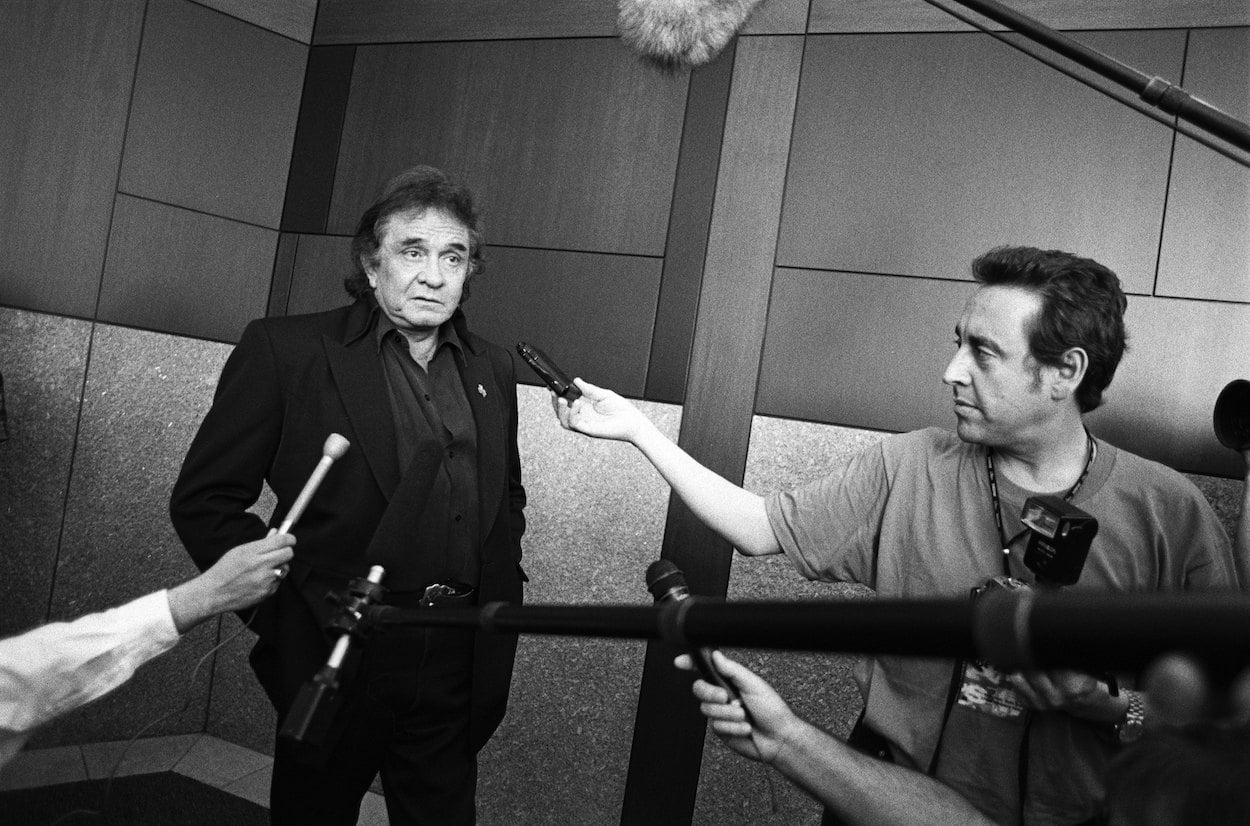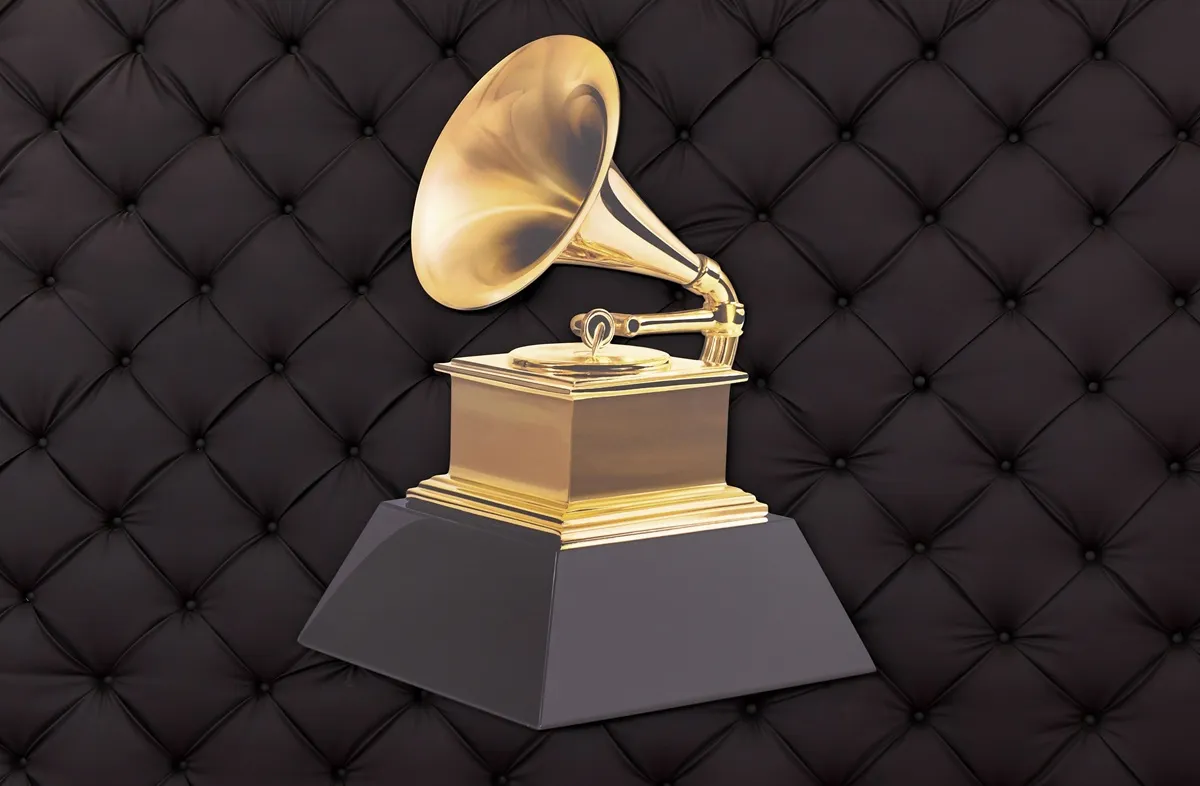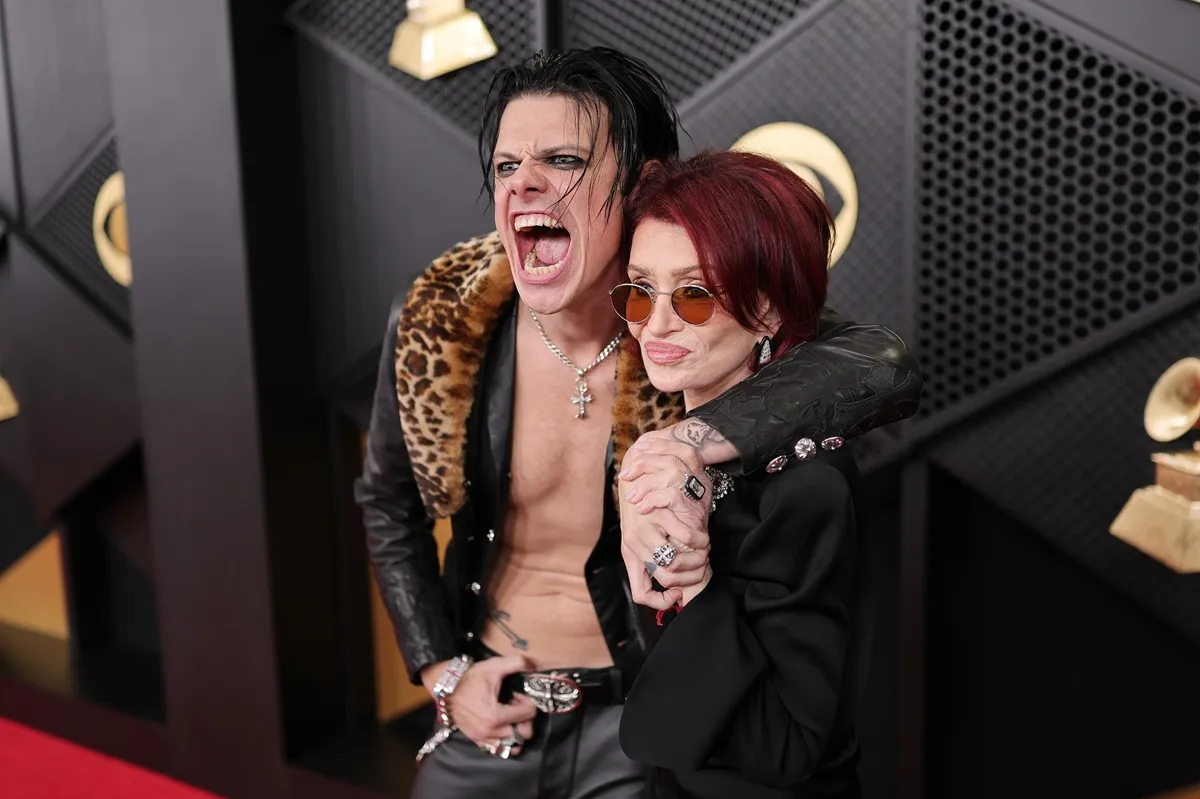
Johnny Cash Praised Heavy Metal Bands and Called Out Would-Be Music Censors for Attacking Them
Johnny Cash made a name for himself as a country music star, and traditional gospel hymns were some of the earliest songs he learned. He once said his favorite album was his record of songs from his mother’s hymn book. Yet Cash praised heavy metal bands and included them on the list of music he appreciated. The Man in Black called out would-be music censors stalking the warpath in the 1980s.

Johnny Cash covered heavy metal songs later in his career
Rick Rubin helped revive Cash’s career in the 1990s. The producer reached out to the country music legend with a simple request — play the songs you want to play. Their collaboration led to a series of albums titled after Rubin’s record label, American Recordings.
The first record, American Recordings, included Cash’s cover of punk/metal star Glenn Danzig’s “Thirteen.” For someone who grew up singing gospel songs and later released an album titled My Mother’s Hymn Book, Cash seemed to have no problem covering a song from an album titled Satan’s Child.
Cash again showed his love of heavy music when he covered Soundgarden’s “Rusty Cage” for American II. He later turned in a version of the Nine Inch Nails song “Hurt” that might rank as one of the coolest cover songs of all time.
The Man in Black wasn’t just going through the motions, either. Cash praised heavy metal music when his children introduced him to bands such as Metallica, Iron Maiden, and Motörhead in the 1980s. He even called out would-be music censors for targeting some of those bands’ music.
Cash praised heavy metal bands and Eminem and called out would-be music censors
Cash will always be associated with country music. Dozens of albums released over several decades ensure that. But he became a fan of drastically different musical styles thanks to his children.
As Alan Light writes in Johnny Cash: The Life and Legacy of the Man in Black, Cash praised heavy metal bands his kids listened to: Metallica, Iron Maiden, Motörhead, and Twisted Sister. Dee Snider, the frontman of the latter band, testified in front of Congress when the Parents Music Resource Center sought to label music it considered explicit. That didn’t sit well with Cash (per Light):
“How presumptuous people are my age to think that they’re finally going to do something toward raisin’ their kids right by censoring three minutes of what they hear in a day’s dialogue.”
Johnny Cash
Cash wasn’t just praising those heavy bands for show. He genuinely believed they deserved the same freedom of expression as he did when he sang, “I shot a man in Reno / Just to watch him die,” in “Folsom Prison Blues.” In 2001, he told Light that the then-controversial Eminem didn’t bother him.
“More power to him,” Cash said, per Light. “If he’s making the records he wants to make and people like them, then that’s what it’s all about.”
The Man in Black sought Iron Maiden singer Bruce Dickinson’s autograph
Cash’s praise for heavy metal bands in the 1980s and non-country cover songs later in his career prove he wasn’t focused on just one kind of music. His children loved the music of Metallica, Twisted Sister, and Motörhead, and he appreciated it, too.
It was a meeting of heroes when Cash crossed paths with Iron Maiden frontman Bruce Dickinson. The “Run for the Hills” singer revealed that The Man in Black asked for his autograph when they met in Toronto in the 1980s (per Louder):
“I’m just getting ready to leave when this giant, wearing thigh-high leather boots, a leather coat, and this stetson hat, walks up and goes, ‘Hi, my name’s Johnny Cash.’ And I’m just like…’I know!’” Dickinson said during a Jan. 13, 2023, stop of his spoken word tour in Bergen, Norway. “I’m looking at him going, ‘Hi, yeah, yeah, wow, ‘I shot a man in Reno just to watch him die.’ And he said, ‘Hey, uh, listen. I’m really embarrassed about this. You couldn’t sign this for my daughter? She’s a big fan.'”
Johnny Cash’s praise for heavy metal bands wasn’t for show. He genuinely appreciated their artistic expression and decried would-be music censors for trying to limit that expression.
For more on the entertainment world and exclusive interviews, subscribe to Showbiz Cheat Sheet’s YouTube channel.


